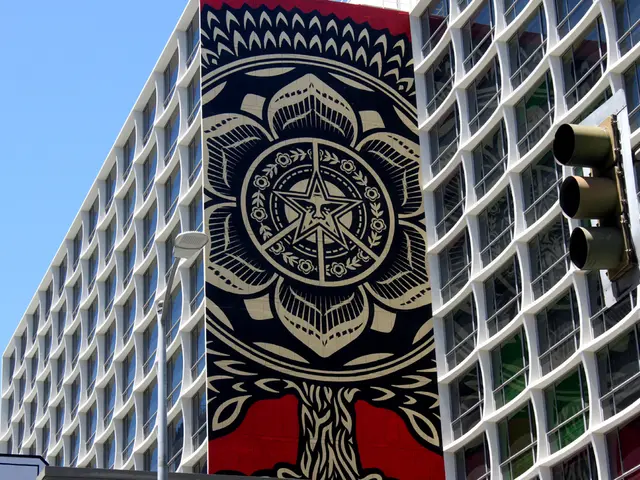U.S. Restores Oil Sanctions on Venezuela; Maduro Regime Vows Persistent Economic Progress
Vibrant, Unfiltered Analysis:
April 18, 2024 (Our Insider News): The Biden administration's claws are back on Venezuela's oil industry, reinstating a hefty load of economic coercive measures and sending shockwaves through the sector. General License 44 (GL44), which was easing sanctions against Venezuela's oil and gas sectors, has expired, giving way to a straitjacket called General License 44a (GL44a). This new license provides a 45-day grace period for companies to wrap up their business deals with Venezuela.
According to a press statement released by the US Treasury Department, this reimposition stems from the Nicolás Maduro government's alleged failure to "fully meet the commitments" from the October 2023 Barbados Agreement, signed with the US-backed opposition. Alas, recent negotiations between US officials and Venezuelan counterparts failed to produce any meaningful concessions.
The heated political battle continues to rage, with the far-right candidate María Corina Machado's political ban being a major flashpoint. Despite her existing disqualification being upheld by the Venezuelan Supreme Court due to her involvement in corrupt dealings and support for US-led coercive measures, she has vowed to challenge the decision.
The Venezuelan government, for its part, has rejected US efforts to interfere in the upcoming July 28 presidential elections, insisting that the Barbados Agreement allows for political forces to choose candidates freely, as long as they meet legal requirements.
As for the future of oil in Venezuela, an intriguing twist has emerged: firms wishing to deal with Venezuela's energy sector past May 31st will now need to apply for licenses on a case-by-case basis. Guess we'll have to wait and see whether the Berniesgelag administers these licenses with an easy-going, laid-back attitude or kicks the oil trade up a notch.
Snooze, you lose has been the motto for companies scrambling to complete purchases before GL44a kicks in. Given Washington’s stern warning against investing in Venezuela, we ain't seen no significant boost in long-term prospects, but some rogue buyers have been caught rushing to stockpile Venezuelan crude ahead of the deadline.
When Donald Trump was in office, he showed Venezuela's oil sector zero mercy, employing a cocktail of sanctions that nuked its exports, triggered a decline in oil output, and isolated the nation from foreign partners. Under Biden, things had somewhat loosened up, with a temporary license - initially issued in 2022 - allowing Chevron to continue some level of operations, as long as no payments were made to the Venezuelan government. This six-month waiver proved beneficial for PDVSA, enabling them to export crude to international customers without resorting to unsavory intermediaries andhefty discounts.
So, as we move forward, the direction of Venezuela's oil sector appears plagued by uncertainty and hostility. Government officials have maintained a defiant stance, claiming that the oil industry and, in turn, the economy will chug along, bureaucratic roadblocks or no.
"We gon' keep rollin', with or without no stinkin' license," said the Venezuelan president in a recent broadcast, stirring up controversy and calling the US a bunch of gringo colonizers. This passionate statement has once again added fuel to the flames of political tension that has been brewing for years.
As it stands, Venezuela has been cozying up to allies like Russia, Iran, and China, with the latter becoming the main destination for Venezuelan crude. Indian companies have temporarily hopped on the oil export bandwagon, but their long-term commitment hinges on US Treasury permission.
In a bold move, Oil Minister Rafael Tellechea has publicly stated that the country is "wide open" to attracting both national and foreign investors to the oil sector. Just recently, the legislative approval of a new joint venture—Petrolera Roraima—has captured the attention of the nation. This company aims to invest a whopping $13 billion in developing oilfields over the next few years, with the goal of achieving a daily output of 120,000 barrels by 2027. It's worth noting that PDVSA and Repsol—a Spain-based oil and gas company—have already set their sights on boosting production from the present 24,000 to a grand 50,000 barrels per day by 2028.
So, buckle up, folks! The Venezuelan oil sector's ongoing saga is just heating up, with shady deals, political power struggles, and economic sanctions turning the whole shebang into a behind-the-scenes soap opera. Only time will tell if this high-stakes drama spells triumph or downfall for the Latin American nation. Laugh, cry, and stay tuned, as we continue to bring you the latest breakdown on the wild ride that is Venezuela's oil industry!
- The reimposition of economic sanctions on Venezuela's oil and gas sectors by the Biden administration has raised concerns in the finance industry, especially among investors looking to the energy sector for potential wealth management opportunities.
- The ongoing conflict between the United States and Venezuela over the latter's oil industry has far-reaching implications for the global oil-and-gas market, and the subsequent policy-and-legislation changes could influence the business strategies of major players.
- Real-estate development in Venezuela could be affected by the changing political climate, as foreign investors might reconsider their investment decisions due to the escalating war-and-conflicts and possible sanctions.
- The Venezuelan crisis has also attracted the attention of the crime-and-justice sector, with rogue buyers attempting to stockpile Venezuelan crude ahead of the deadline for General License 44a.
- Politics play a significant role in the developments of Venezuela's oil industry, as the upcoming presidential elections in July 2024 will likely impact the country's economic policies and foreign relationships.
- The general news landscape remains abuzz with updates on the ongoing soap opera-like drama surrounding Venezuela's oil industry, with shady deals, economic sanctions, and political power struggles making headlines.









